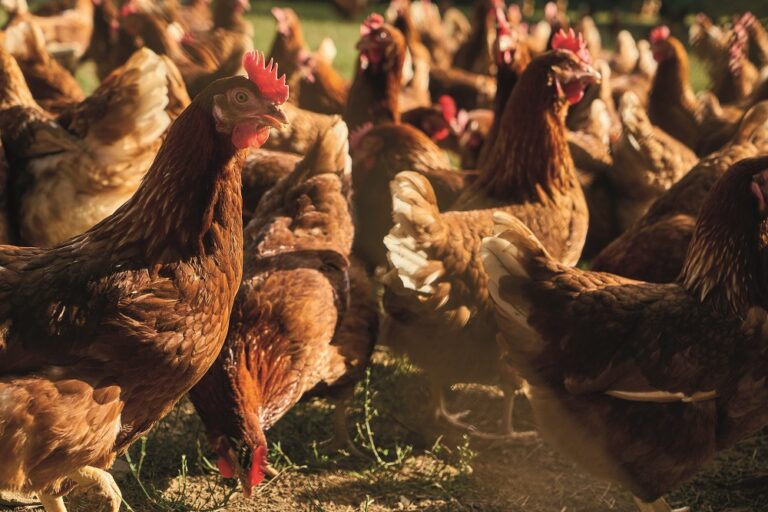By Mark Williams, chief executive, British Egg Industry Council
A few weeks ago, much of the country enjoyed what was came to be known as ‘Freedom Day’. On 19 July, the majority of COVID restrictions ended in England, with Scotland, Wales and Northern Ireland keeping some, but minimal restrictions in place for several weeks, notably face masks still needed indoors and on public transport in Wales. The Welsh Government has been ramping up public messaging, warning those who visit Wales to follow the guidance there. The UK Government, and England’s chief medical officer, Professor Chris Whitty, acknowledged that case numbers would rise when restrictions are lifted, but that a combination of the vaccination programme and natural infection has led to a high enough level of immunity of the population, and severely weakened the link between infection and hospitalisation or death. However, he acknowledged it hasn’t completely severed the link – albeit most hospitalisations and deaths are those who have had only one jab, rather than both.
The UK Government has taken a gamble, albeit on the scientific and medical advice of their experts, Chris Whitty and his deputy Jonathan Van-Tam, that the peak we are likely to see in terms of hospitalisations or deaths will be infinitesimally smaller than previous peaks, and that it is better for the virus to reach this level now rather than to hit during the winter – when the NHS will be under greater pressure. The NHS is already under pressure from large numbers of non-urgent operations that had to be delayed due to the last COVID peak, however. Whether or not this strategy will see the UK transition from the pandemic to the endemic stage, time will tell over the coming weeks and months.
The problem we are facing now is not just potentially a rapid rise in infections, but the number of people having to self-isolate because of the NHS Track and Trace app. The ‘pingdemic’ as its being referred to has already forced major retailers such as Iceland to shut shops, and brewery Greene King to close pubs to due staff shortages by people being forced to self-isolate by the NHS app. The British Retail Consortium has said “the ongoing pingdemic is putting pressure on retailers” but so far has only caused “minor disruption to some supply chains”. However, the Confederation of British Industry issued a sterner warning that “crippling staff shortages” that are hampering the economic recovery. The British egg industry, along with other agricultural and food sectors were experiencing staff shortages before the pandemic because of the UK leaving the EU, but the Track and Trace system has led to large numbers of staff on our farm and in our packing centres having to self-isolate after being pinged by the app. Not only will this have an impact on supply chains, but it will impact animal welfare, planning of bird management, as well as production and transport. If cases continue to rise, which many experts have predicated they will, staff shortages will worsen considerably.
Our members have expressed dismay that their employers and the food industry are not classed as key workers in a critical industry – keeping the nation fed. The current policy that those who are double jabbed, but show no COVID symptoms, still have to self-isolate, is not workable. This has been acutely felt with our drivers, particularly in the context of a national driver shortage that has been exacerbated by the UK leaving the EU. The UK Government has said that from 16 August, people who are fully vaccinated will not have to self-isolate if they are notified by the NHS app when they have come into contact someone who has tested positive for COVID, but instead they will be advised to take a PCR test as soon as possible.
The good news is that, at the time of writing, government has announced that in England a list of 16 sectors has been drawn up where workers may be exempt from isolation. The egg industry is included in ‘food production and supply’. This falls under two parts: a list of critical job positions in the egg industry where, if accepted, a letter can then be issued in the name of individuals to enable them to continue working if pinged, subject to them been double jabbed and continuing to test negative; and a list of companies in the egg sector that are critical to the food supply chain. If accepted, these will be eligible for on-site testing of any of their workforce who get pinged provided the individuals continue to test negative. Individual workers do not need to be double jabbed for this scheme.
On the international trade front BEIC continues to lobby government, MPs and others to ensure that our high standards of food safety, animal welfare and environmental protection are not undermined by lower standard imports.
Comment: Staff shortages are hitting the egg sector, and government policy is not workable

Previous ArticleHow to tackle ILT outbreaks
Next Article How to improve eggshell quality and bone strength
Chloe Ryan
Editor of Poultry Business, Chloe has spent the past decade writing about the food industry from farming, through manufacturing, retail and foodservice. When not working, dog walking and reading biographies are her favourite hobbies.

